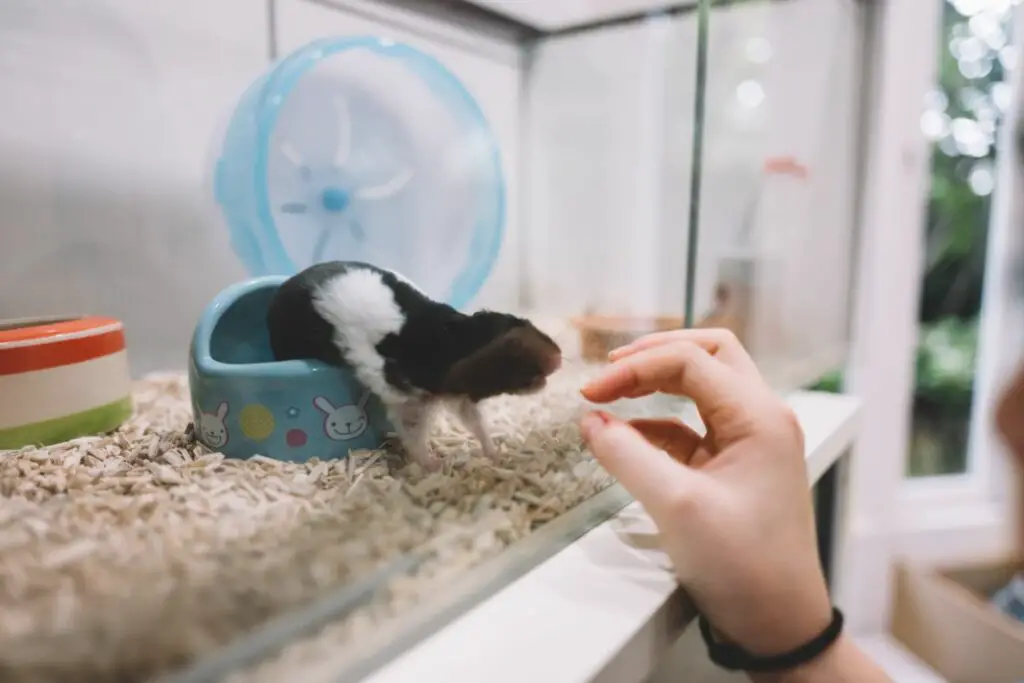Hamsters are popular pets because of their adorable demeanor and low maintenance requirements. However, like any living creature, they can experience stress, which can lead to illness and a shortened lifespan. It’s important to recognize the signs of stress in your hamster and take steps to relieve it.

Why Is It Important to Know When Your Hamster Is Stressed?
Stress can have a significant impact on your hamster’s health. When a hamster is stressed, their immune system weakens, making them more susceptible to illnesses.
Additionally, stress can cause behavioral changes, such as aggression or lethargy, which can indicate an underlying health issue. By recognizing signs of stress, you can take steps to alleviate it and improve your pet’s overall well-being.
What Causes Stress in Hamsters?
Hamsters can experience stress from a variety of factors. These include:
- Environmental factors, such as loud noises or excessive handling
- Changes in their routine or living environment
- Social stress from living with other hamsters
- Illness or pain
It’s important to pay attention to your hamster’s behavior and environment to identify potential sources of stress.
Signs of Stress in Hamsters
Hamsters can exhibit both physical and behavioral signs of stress.
Physical Symptoms of Stress
- Rapid breathing
- Diarrhea
- Loss of appetite
- Hair loss
- Lethargy
- Skin irritations
If you notice any of these symptoms in your hamster, it’s important to consult with a veterinarian.
Behavioral Signs of Stress
- Aggression
- Excessive grooming
- Hiding
- Decreased activity
- Restlessness
- Irritability
- Biting
If you notice any of these behavioral changes in your hamster, it’s important to take steps to relieve their stress.
How to Relieve Stress in Your Hamster
There are several steps you can take to help alleviate stress in your hamster.
Provide a Safe and Comfortable Environment
Make sure your hamster’s cage is clean, spacious, and has plenty of hiding places. Provide bedding that is comfortable and absorbent, and ensure the cage is located in a quiet area of your home away from loud noises.
Ensure Your Hamster is Getting Proper Nutrition
A healthy diet is essential for your hamster’s overall well-being. Make sure they have access to fresh water and a balanced diet of pellets, fresh vegetables, and occasional treats.
Engage Your Hamster in Enriching Activities
Hamsters need mental stimulation to prevent boredom and alleviate stress. Provide toys, such as chew toys and exercise wheels, and allow them to explore outside of their cage in a safe space.
Reduce Exposure to Stressful Stimuli
Identify potential sources of stress in your hamster’s environment and take steps to reduce their exposure. For example, if your hamster is stressed by loud noises, move their cage to a quieter location.
Visit a Veterinarian
If you notice any physical or behavioral signs of stress in your hamster, it’s important to consult with a veterinarian. They can help identify the underlying cause of stress and recommend appropriate treatment.
Preventing Stress in Hamsters
Taking steps to prevent stress in your hamster can help improve their overall health and well-being.
Creating a Stress-Free Environment
Provide a clean, comfortable home for your hamster and minimize potential sources of stress, such as loud noises or bright lights.
Regular and Proper Handling
Handle your hamster gently and appropriately to prevent injury and reduce stress. Avoid excessive handling, which can be stressful for your pet.
Proper Cage Cleaning and Maintenance
Maintain a clean, hygienic environment for your hamster by regularly cleaning their cage and providing fresh bedding. This can help prevent illness and stress.
Wrapping up
In conclusion, recognizing signs of stress in your hamster and taking steps to alleviate it can help improve their overall health and well-being.
By providing a safe and comfortable environment, proper nutrition, and mental stimulation, you can help prevent stress and promote a happy, healthy life for your furry friend.
- How Long Do American Eskimo Dogs Live? Important Factors and Care Tips - September 29, 2023
- Do American Bulldogs Need Grooming? Essential Tips and Care Guidelines - September 29, 2023
- Do Bengal Cats Enjoy Playing? Essential Tips for Keeping Them Active - September 29, 2023